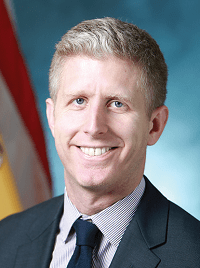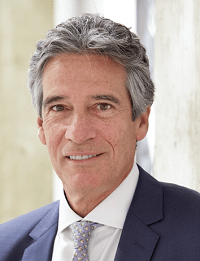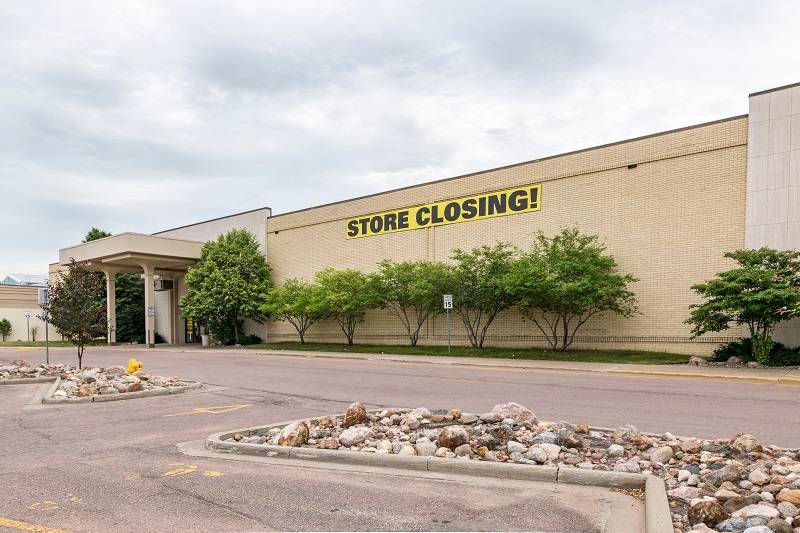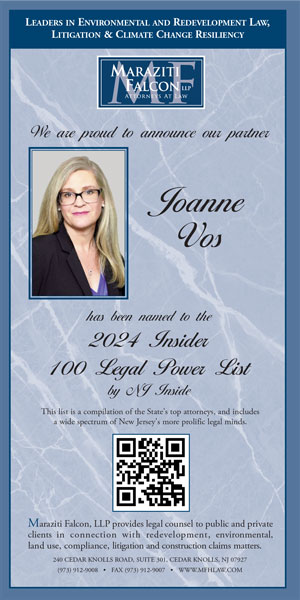Experts say the way to revive outdated, underutilized commercial properties in New Jersey is to make the sites an essential part of their communities. That can mean increasing the amount of public green space or adding mixed-use elements, among other options aimed at redeveloping so-called stranded assets.
By Marlaina Cockcroft
Verizon, having spent the past 15 years repurposing corporate assets around the country, is now turning that focus to its sprawling, 1.4 million-square-foot campus in Somerset County.

Company executive John Vazquez pointed specifically to nine acres adjacent to the Basking Ridge property, where it hopes to add market-rate and affordable housing, retail and other amenities “that will attract people to the campus” and provide new benefits to the community.
“The way that Verizon looks at this is that our highest and best use is not just ‘What is the financial performance?’ but ‘What did we actually give back to society at the end of the day, how did we improve the local economy and how did we make life better for the people that have housed these facilities for decades?’ ” said Vazquez, the company’s senior vice president for global real estate and global supply chain. “So we take a very holistic view and we always look to work with the leaders, both from a government leader perspective and local real estate developers, to see what is really the right answer for a lot of these locations.”
He spoke recently during a program hosted by design firm Gensler and the state Economic Development Authority, echoing other panelists who discussed ways to revive or repurpose large commercial properties in New Jersey. One key, they said, is to make the sites an essential part of their communities, such as by increasing the amount of public green space or adding mixed-use elements, especially when it comes to vacant or partially vacant retail malls and office parks that drain resources from their host municipalities.

“As we recover from the pandemic, people and businesses are reimagining what they want from their communities,” Economic Development Authority CEO Tim Sullivan said, noting the traditional suburban office park probably won’t come back. “That’s not what companies want anymore, to be alone by themselves with no amenities and nothing else.”
As for malls and strip malls, “not all of them are going to be what they were 15, 20 years ago.” That’s a challenge for landlords and municipalities, he said, “but it’s also a huge opportunity to think about how we can infuse New Jersey with … what we need a little bit more of,” such as more mixed-use destinations with housing, office space, retail and other amenities all in one place.
Still, he added that “we’ve got to help our cities and towns get ready for it.” To help them do so, Sullivan said the EDA’s 21st Century Redevelopment Program — accepting applications at njeda.com — offers grants of up to $50,000 to redevelopment agencies, municipalities or counties to help plan how to redevelop or re-green so-called stranded assets. The grants can be used for determining the cost-benefits of retrofitting, redeveloping or re-greening a property, supporting businesses, creating affordable and multifamily housing and creating social, economic or environmental sustainability, among other things.
He added that there are funding tools to help redevelop stranded assets in the New Jersey Economic Recovery Act of 2020, which created the state’s new $14 billion incentives framework. That includes the NJ Aspire program, the Main Street Recovery Finance Program and the Brownfield Redevelopment Incentive.
Joseph Kelley, Gov. Phil Murphy’s deputy chief of staff for economic growth, said as New Jersey moves out of the pandemic, “we have a real opportunity to take some of those commercial assets and reposition them, position the state and our downtowns for a really vibrant period of growth and turnaround.” The new state incentives and federal funds from the American Recovery Act will help municipalities in that regard.

“I would say there’s also, using a lot of those same tools and pockets of either incentives or cash, ways to take undermanaged assets and either help see their full transformation or full utilization or build upon them in new ways,” Kelley said.
Mixed-use conversions are the way forward for aging, vacant retail properties, according to Joseph Brancato, co-chairman of Gensler.
“Retail centers will emerge as one of the most valuable asset classes in a post-pandemic landscape,” he said during the June 22 program, which was moderated by NJBIZ Managing Editor Linda Lindner.
Many malls were disconnected from the community, Brancato said, noting that they featured “large buildings with a sea of parking around them” and “were not pedestrian-friendly at all.” Gensler has worked on several projects that aim to bridge that gap by transforming those properties into multiuse environments. At shopping malls such as the Galleria in White Plains, New York, the firm has proposed cutting out part of an existing structure to bring in more sunlight and adding pedestrian-friendly green space that could be used for public events. At the 1.7 million-square-foot Rosedale Center in Roseville, Minnesota — which Brancato said evokes the traditional suburban malls seen across New Jersey — plans call for converting surface parking to building pads for new uses such as housing, senior living, medical office and professional office.

“People want to live, work and shop all within a 20-minute radius,” he said.
Vazquez, the Verizon real estate executive, detailed the work the company has been doing for the past 15 years on over 25 of its own stranded assets. In Newark, for instance, a developer has revamped a Broad Street office building to include residential and student living as well as ground-floor retail.
An office park surrounded by a ring road isn’t how companies want to house employees anymore, “especially post-COVID, where we’re looking at a hybrid work situation,” Vazquez said.
Aisha Glover, vice president of urban innovation at Audible, said the audiobook company is the fastest-growing employer in Newark, one that considers itself an anchor in the city and “(tries) to maximize our social and economic impact here.”

To that end, Audible has launched several programs to help the city. Newark Working Kitchens paid 30 restaurants over the past 15 months to provide meals to people in need. Audible wanted to “thoughtfully and intentionally keep the lights on at those restaurants because we didn’t want to come back to vacant storefronts,” Glover said. “We know that vacancies lead to public safety concerns, lead to blight, lead to loss of local tax revenue.”
Newark Venture Partners, an affiliated venture capital fund and accelerator, invests in early-stage tech companies to encourage technological development in the city, “and more importantly, make sure that those companies are permanently planting roots here.” The program has helped establish about 80 startups over the past six years, Glover said. Innovation Cathedral, launched in December 2019, reconceived a former church and community center building as office and amenity space for 500 Audible employees.
During a Q&A portion, Lindner asked Brancato whether red tape can hold up the redevelopment of long-dormant properties. Brancato said the process moves a lot faster if the public sector and private sector work together with the community. Over 50,000 people moved out of Manhattan to New Jersey during the last year and a half, he said, so there’s a need now for these projects.
To Lindner’s question about the authenticity of created communities, Glover said, “I don’t know that any city has gotten it right.” The goal is to increase development and to attract certain businesses without displacing people, she said.
Vazquez, explaining how to handle redevelopments outside major cities, said it’s important to engage with the local community and employees, because the project can’t just be a financial exercise.
“Sometimes these programs won’t make money. But they’ll make great partners in the community.”
For instance, Verizon’s site in Dallas provides kitchen space to restaurant owners so they can restart lost businesses. Programs like this create good will, he said.
“We have an obligation to our neighbors, we have an obligation to society, and we take that seriously,” Vazquez said.










